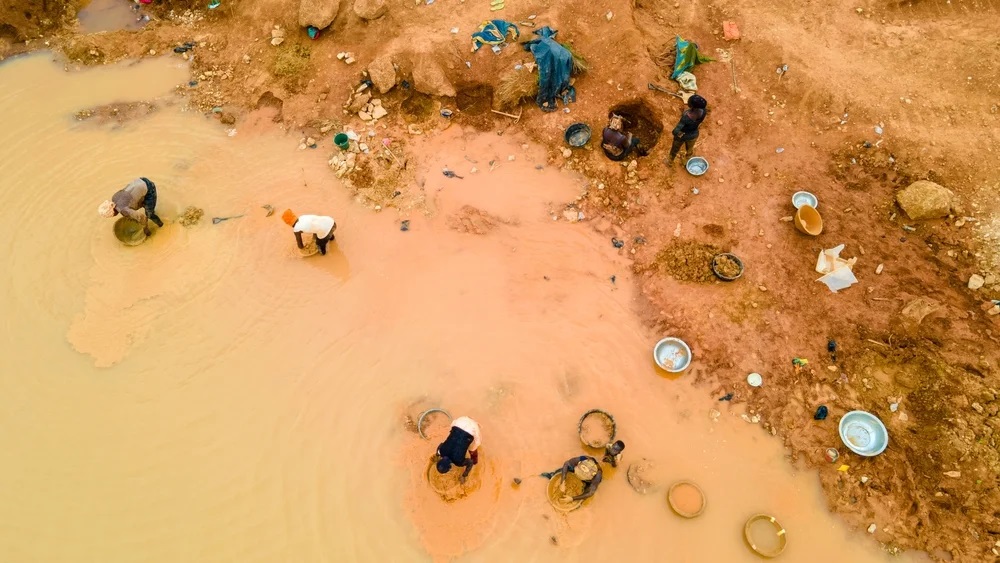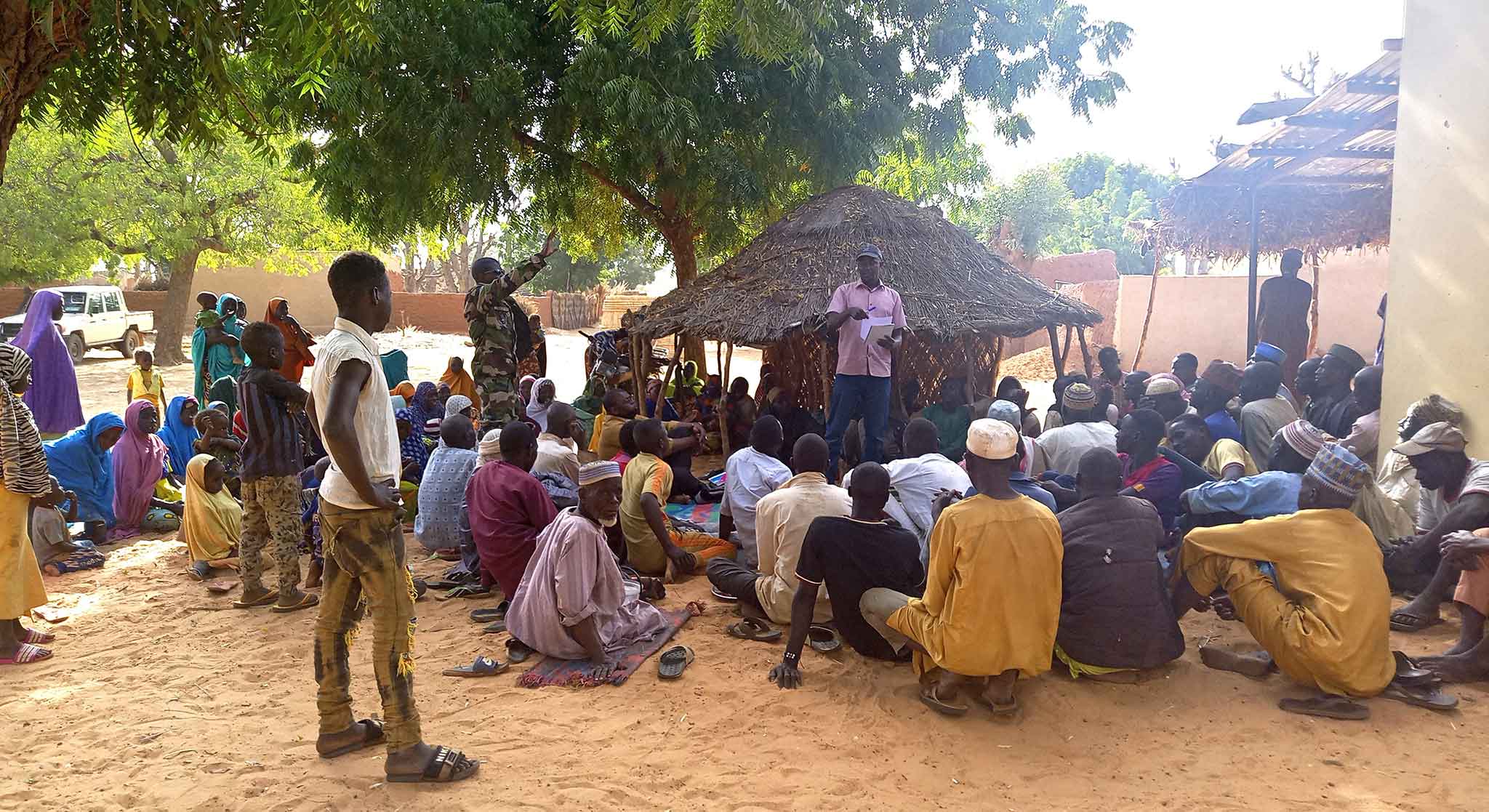Collaborative efforts to bridge the Gender Gap in Science, Technology, Engineering, and Mathematics in Senegal
In West Africa, despite commendable efforts by governments to enhance girls’ enrollment in Science, Technology, Engineering, and Mathematics (STEM) programs, a significant gender gap still exists. This disparity underscores the need for a comprehensive strategy aimed at empowering women and girls to explore and excel in STEM. Under the joint USAID and NASA project, implemented by ICRISAT, the Centre de Suivi Écologique (CSE) has taken a proactive role in this endeavor by initiating a collaborative approach to guide young people toward scientific fields.
Dr. Mariéme Diallo, Gender Focal Point for the SERVIR-WA program at the CSE, emphasizes the importance of research protocols and effective learning tools in nurturing an interest in science among young people.
“By using these tools, the CSE aims to steer young minds towards scientific careers. Additionally, the SERVIR WA program leverages remote sensing and geographic information systems to address gender-related development challenges, contributing significantly to the education of young people, especially girls, in the geospatial field” says Dr. Diallo.


From left to right: members of the executive committee of the national SERVIR-WA Club and Ms. Coumba Ba presenting the Lycée Alboury Ndiaye activity report.
The first phase of the SERVIR WA project in Senegal saw the establishment of the inaugural SERVIR club at Gaston Berger University in Saint-Louis with the participation of 580 students. Subsequently, more than 350 young girls were formed in partnership with the Directorate of General Secondary Education (DEMSG) and the Global Learning and Observations to Benefit the Environment (GLOBE) program, all with the shared goal of promoting STEM education.
“We provided training and support for the implementation of protocols related to three thematic areas of SERVIR-WA, namely, agriculture and food security, weather and climate, water resources and natural disasters. Syer III College, as well as Alboury Ndiaye and Ranérou High Schools, have been selected to host the SERVIR/GLOBE clubs,” Dr. Diallo explains.
The SERVIR clubs have yielded remarkable success stories, such as that of Coumba Bâ, a student at Alboury Ndiaye High School. These clubs not only deepen students’ knowledge of science but also encourage them to inspire their fellow middle school students to take an interest in scientific subjects.
“We established our club at the high school in 2021. We installed weather stations, and SERVIR WA provided us with equipment. This way, we carry out various activities, such as cloud cover assessment, measuring tides to record their temperature, and we also have a mini-garden where we grow some vegetables. This club allows us to acquire more knowledge, especially in our scientific subjects. I emphasize that our activities are not exclusive to students in science classes, literary students also take part. Through our activities, we raise awareness among our peers in 4th and 3rd grades to encourage them to choose scientific tracks” Coumba says.


From left to right: members of the executive committee of the national SERVIR-WA Club and Ms. Coumba Ba presenting the Lycée Alboury Ndiaye activity report.
Building on the success of the SERVIR clubs in Senegal, a national workshop was held from August 28 to 30, 2023, in Saint-Louis. The workshop resulted in the establishment of a national coordination unit, aimed at consolidating achievements and further promoting STEM education in Senegal.
“Since the beginning of this year, we’ve been dreaming of setting up a national coordination system in order to bring together the four local SERVIR clubs in Senegal. We are confident that this will allow us to coordinate the activities from local to national levels ” said Dr. Mamadou Adama Sarr, Coordinator of the activities of the SERVIR West Africa project at the CSE.
The national workshop appointed Dr. Abou Issa Pouye from Gaston Berger University in Saint-Louis as the president of the national coordination system of SERVIR-WA clubs in Senegal, with Ms. Coumba Ba from Alboury Ndiaye High School in Linguère serving as the vice-president. This development marks a significant milestone in the ongoing efforts to empower girls and young women in Senegal and overall West Africa to embrace STEM fields and shape their futures in science and technology.
About SERVIR West Africa:
SERVIR WA 2 is a joint initiative of NASA and USAID. It partners with leading organizations in various world regions to support them in providing decision-makers with products and services to strengthen resilience. SERVIR West Africa 2 (SERVIR WA 2) is led by ICRISAT as part of a consortium with several West African institutions, international universities, and organizations. The consortium is comprised of the African Regional Institute for Geospatial Information Science and Technology (AFRIGIST, Ile-Ife, Nigeria), the Agrometeorology, Hydrology, Meteorology Regional Center (AGRHYMET, Niamey, Niger), the Centre for Remote Sensing and Geographic Information Services (CERSGIS, Accra, Ghana), the Centre de Suivi Écologique (CSE, Dakar, Senegal), the Institut Supérieur d’Études Spatiales et des Telecommunications (Ouagadougou, Burkina Faso), and the African Institute of Mathematical Sciences (AIMS, Mbour, Senegal and Accra, Ghana) as well as partnership with the Center for International Earth Science Information Network (CIESIN) and the International Research Institute for Climate and Society, both at Columbia University, and with the University of Florida.
Header image: Training session in STEM. Photos. Thioro Codou Niang, CSE.




